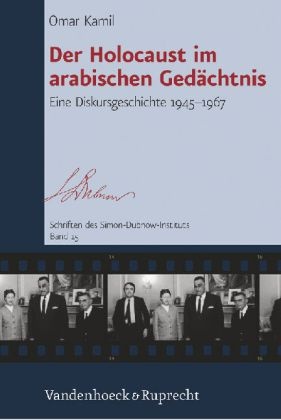Read more
This volume demonstrates how an appropriate perception of the Holocaust in the Arab world can be distorted through the colonial legacy. Whereas the Holocaust has become a central point in European history, in the Arab world these events were felt only marginally. This limited field of vision took place against the background of the problem of Palestine or within the scope of the relationship of Arab nationalists to National Socialism. Omar Kamil follows a dialogue-based historical concept by comparing texts of Arnold Toynbee, Jean-Paul Sartre and Maxime Rodinson with those of the Arab world in the 1960s. He shows that a proper perception of the Holocaust in the Arab world has been distorted by the colonial experience in these countries.
List of contents
Vorwort
Einleitung
Toynbee in Montreal
Vorgeschichte
Juden und Araber
Geschichtsphilosophie oder Der Gang der Geschichte
Streitgespräch
Arabische Rezeption
Toynbee in Kairo
Eichmann in Kuwait
Widerstreitende Schicksale
Sartre in Kairo
Philosophie und Engagement
Betrachtungen zur Judenfrage
Koloniale Erfahrung
Palästinafrage
Sartre und die Araber
Gescheitertes Gespräch
Sartre in Israel
Vom Ende einer Utopie
Rodinson in Beirut
Libanon 1967
Molière in Tripolis
Palästina und Auschwitz
Araber und "jüdische Frage"
Marx auf Arabisch
Widerstreitende Erzählungen
Schlussbemerkungen
Hinweise zur Transkription
Quellen
Taha Hussain: Von Kairo nach Beirut
Jawwad Ali: Toynbee
Muhammed Tawfiq Hussain: Arnold Toynbee. Der Fürsprecher der Araber im Westen
Kamil Zuhairy: Jean-Paul Sartre und die jüdische Frage
Dawud Tilhami: Sartre und die Palästinafrage
Lutfi al-Khouly: Maxime Rodinson in Kairo
Quellen und Literatur
About the author
Dr. Omar Kamil ist Wissenschaftlicher Mitarbeiter am Simon-Dubnow-Institut für jüdische Geschichte und Kultur an der Universität Leipzig und lehrt gegenwärtig als Professor an der Hochschule für Jüdische Studien Heidelberg.

